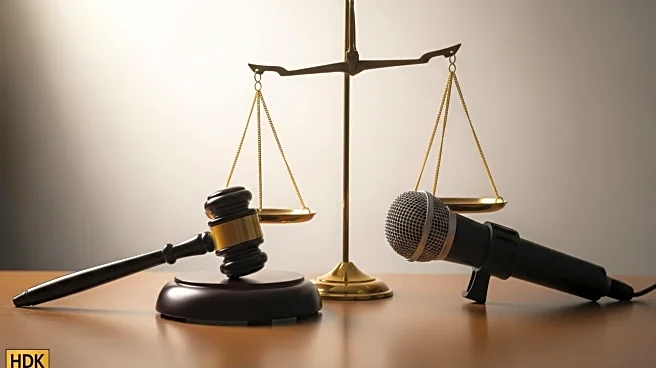What's Happening?
Senator Ted Cruz of Texas has publicly criticized the Federal Communications Commission (FCC) following its decision to urge ABC to suspend late-night host Jimmy Kimmel. Cruz described the FCC's actions as 'dangerous as hell' and likened them to a mafia shakedown. The controversy stems from comments made by the FCC head, a Trump appointee, who called for ABC to take action against Kimmel. This move has sparked debate over the role of government agencies in regulating media content and the implications for free speech.
Why It's Important?
The criticism from Senator Cruz highlights ongoing tensions between government oversight and media freedom. The FCC's involvement in the suspension of a media figure raises questions about the limits of regulatory power and its impact on free speech. This situation could set a precedent for how media personalities are treated by regulatory bodies, potentially affecting the landscape of entertainment and political commentary. Stakeholders in the media industry, including networks and content creators, may face increased scrutiny and pressure from government entities.
What's Next?
The situation may lead to further discussions and potential legal challenges regarding the FCC's authority and its influence over media companies. Political leaders and advocacy groups might weigh in on the issue, advocating for clearer guidelines on media regulation. The outcome could influence future interactions between government agencies and media outlets, shaping the boundaries of free speech and censorship in the U.S.
Beyond the Headlines
This incident underscores the delicate balance between government regulation and media freedom. It raises ethical questions about the extent to which government agencies should intervene in media content and the potential chilling effect on free expression. The long-term implications could affect how media companies approach controversial topics and manage their programming.









